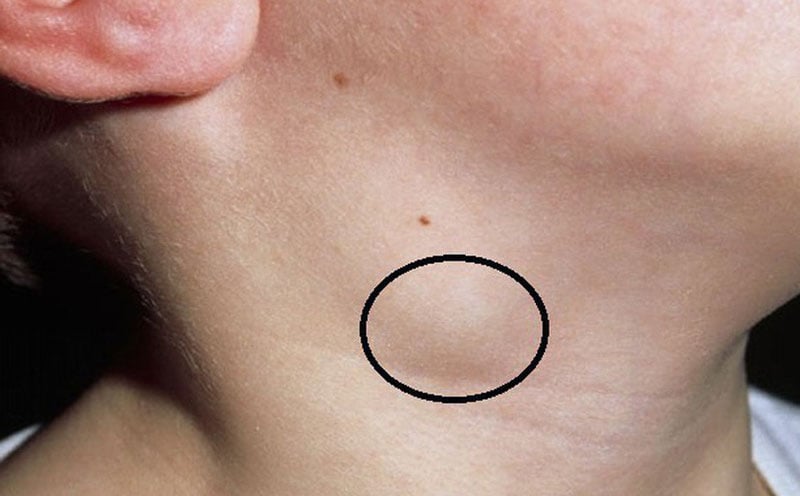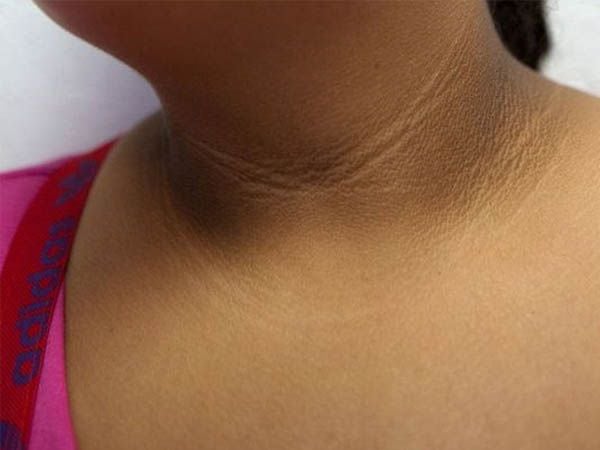Cancer doesn’t develop overnight. Before a malignant tumor forms, the body goes through a precancerous stage, a period of abnormal changes that, if detected and treated promptly, can significantly improve the chances of recovery and control.
One of the easiest areas to spot these early abnormalities is the neck. Listed below are three common warning signs in this area, which could indicate serious cancers such as lymph node cancer, liver cancer, or stomach cancer.
1. Appearance of abnormal lymph nodes in the neck

Not all neck lumps are dangerous. In fact, our bodies have many small lymph nodes that act as guardians of our immune system. It is normal to feel small, mobile, and painless lumps (smaller than 1cm) which may be a reaction to an infection.
However, if a neck lump displays any of the following characteristics, immediate medical attention is required:
- Size larger than 1cm and growing
- Hard, immobile, and fixed to surrounding tissues
- Painful or painless but persistent for several weeks
These could indicate lymph node cancer, thyroid cancer, or metastasis from another cancer. Early consultation with a specialist can help determine the nature of the lump.
2. Neck skin develops unusual pustules and itching
If you notice red pustules on your neck, a persistent itching and burning sensation, and no improvement with regular hygiene or common medications, this could be a sign of skin inflammation caused by cancerous cell activity.
In the early stages, certain cancers, especially leukemia or blood cancers, may manifest through dermatological reactions. Don’t ignore persistent skin issues on your neck, especially if accompanied by systemic symptoms like fatigue, low-grade fever, or unexplained weight loss.
3. Changes in neck skin color
Healthy individuals typically have consistent skin color throughout their bodies. If you notice that your neck skin has turned dark gray, blackish, or has developed unusual mottling, it could indicate serious liver or stomach problems.
This is because organs like the liver, which is responsible for detoxification, can cause a build-up of toxins in the blood when functioning poorly. This is often reflected in the skin, and the thin layer of epidermis on the neck can be an early indicator. In some cases, it may also be related to chronic liver disease, malignant stomach inflammation, or liver cancer.

Prevent Cancer with Healthy Habits
Early detection improves cancer treatment outcomes by up to 80%. However, it is equally important to adopt a scientific lifestyle to boost your immune system, our natural defense against cancerous cell growth.
- Exercise regularly: Engage in at least 30 minutes of daily physical activity, focusing on cardiovascular exercises like brisk walking, cycling, or swimming.
- Stay hydrated: Drink 2-2.5 liters of water daily to enhance blood circulation, flush out toxins, and support liver and kidney function.
- Eat healthily: Minimize fried and processed foods. Instead, opt for green vegetables, fresh fruits, nuts, and foods rich in fiber and anti-inflammatory compounds.
- Sleep well: Aim for 7-9 hours of quality sleep, preferably before 11 PM, as this is when the body’s natural repair processes are most active, aiding in cell regeneration and boosting natural immunity.
- Regular health check-ups: Get checked at least every 6-12 months to screen for serious illnesses, especially cancer.
Early Cancer Detection: Revolutionizing Cancer Screening with a Simple Blood Test
Recent scientific research has unveiled a groundbreaking discovery: the ability to detect cancer DNA in blood up to three years before symptoms arise. This revolutionary breakthrough offers a potential paradigm shift in cancer diagnosis and treatment, providing a window of opportunity for early intervention and potentially improving patient outcomes.






































